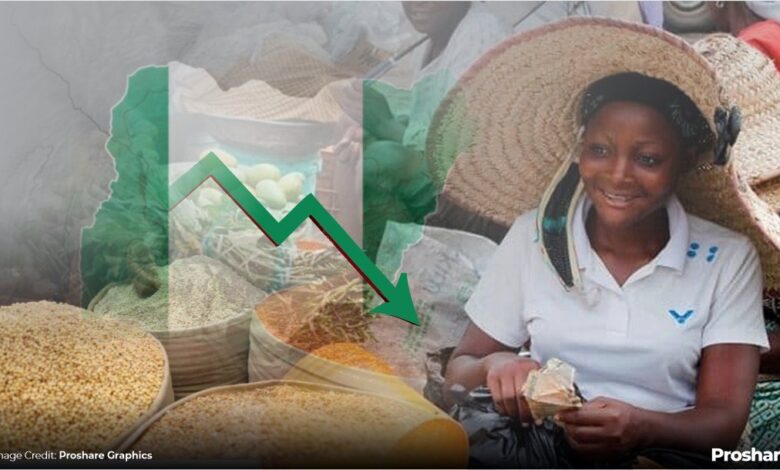Nigeria’s Headline Inflation Rate Drops to 21.88% in July 2025 as Food Prices Fall

Aug 15, 2025
Made in Nigeria products
The Nigeria Consumer Price Index (CPI) report for July 2025, released by the National Bureau of Statistics (NBS), shows that the Headline inflation eased to 21.88% from 22.22% in June, marking a 0.34% month-on-month (MoM) drop. On a year-on-year (YoY) basis, the rate was 11.52% lower than July 2024’s 33.40%, due to a change in the base year (November 2009 = 100). On a MoM basis, headline inflation rose 1.99%, slightly above June’s 1.68%, indicating a faster pace in price increases compared to the previous month. This shows that the rate of increase in the average price level in July 2025 was higher than the rate of increase in the average price level in June 2025.
Food Inflation stood at 22.74% year-on-year (YoY), down 16.79% from July 2024 (39.53%). The decline is primarily attributed to the base year adjustment. On a month-on-month (MoM) basis, food inflation slowed to 3.12% from 3.25% in June, driven by falling prices of vegetable oil, white beans, local rice, maize flour, sorghum, wheat flour, and millet. The average annual rate of Food inflation for the twelve months ending July 2025 over the previous twelve-month average was 26.97%, which was 9.39% points lower compared to the average annual rate of change recorded in July 2024 (36.36%).
Core Inflation (excluding volatile agricultural produce and energy) was 21.33% year-on-year (YoY), down 6.13% from July 2024 (27.47%). On a MoM basis, the Core Inflation rate was 0.97% in July 2025, down by 1.49% compared to June 2025 (2.46%). The average twelve-month annual inflation rate was 23.63% for the twelve months ending July 2025, which was 1.01% points lower than the 24.65% recorded in July 2024.
Made in Nigeria products
State Profile
In July 2025, All Items inflation rate on a month-on-month (MoM) basis, July 2025 recorded the highest increases in Borno (6.11%), Zamfara (5.72%), Kano (4.31%), while Bauchi (0.26%), Katsina (0.30%), and Anambra (0.37%) recorded the lowest rise in MoM inflation. On a MoM basis, Food inflation was highest in Borno (10.89%), Kano (10.86%), and Sokoto (7.43%), while Zamfara (-6.00%), Bauchi (-2.18%) and Abia (-1.06%) recorded a decline in Food inflation on a Month-on-Month basis.




